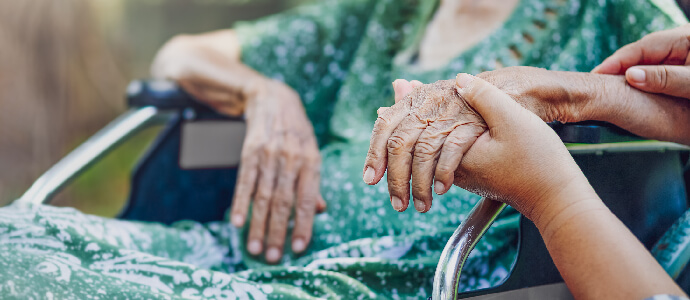If your loved ones have died in nursing homes or senior care centers in California due to COVID-19, turn to J&Y Law. We understand your concerns during this trying time and know that you have many unanswered questions. When you consult with us, we will provide you with informed representation and caring, efficient service. Above all, we will fight to help you obtain the compensation and justice you deserve.
What is COVID-19?
COVID-19 is the name for the disease caused by the novel coronavirus 2019 which originated in Wuhan, China late last year and rapidly spread throughout the world. The virus is considered “novel” because it is a new virus that has never been introduced into the human population. This is why we are not immune to the disease.
While 80 percent of those infected with coronavirus experience mild or no symptoms, others suffer from fever, cough, and shortness of breath. The elderly and those with compromised immune systems or certain pre-existing conditions (e.g. diabetes, high blood pressure, heart, and lung disease, obesity) are at risk of life-threatening respiratory complications. At this juncture, there is no accepted cure, treatment or vaccine for COVID-19, though numerous clinical trials are underway.
How Does COVID-19 Get Into Nursing Homes?
COVID-19 has devastated nursing homes throughout California and across the nation. In fact, it has been reported that about one-third of all U.S. coronavirus deaths are nursing home residents or workers. Residents are more susceptible to COVID-19 due to risk factors such as advanced age, weakened immune systems, and preexisting health conditions.
Despite advance warnings that the elderly are at a higher risk of dying from the novel coronavirus, negligent nursing home operators have failed to protect their residents and workers from COVID-19. In any event, nursing homes have a duty of care to provide residents with a safe environment at all times, including during the COVID-19 pandemic.
Knowing that their residents were most at risk of death if they became infected with coronavirus, nursing home operators and administrators should have implemented proper safety procedures and protocols. In fact, the Centers for Disease Control and Prevention (CDC) has issued guidelines for responding to COVID-19 in nursing homes and assisted living facilities.
The CDC recommended strategies are the same as those already in use to prevent infections such as viral pneumonia and influenza. These include:
- Adhering to universal infection control procedures
- Restriction of visitors except for compassionate care (end-of-life) situations
- Restriction of volunteer and nonessential healthcare services
- Active screening of healthcare personnel and staff for fever and COVID-19 symptoms before each shift
- Sending ill personnel home
- Ensuring staff use of personal protective equipment (PPE), such as face masks, goggles, and gowns
- Daily screening of all residents for fever and symptoms of coronavirus
- Rapid identification and management of sick residents
- Designating a separate location to care for residents with suspected or confirmed COVID-19
To effectively control the spread of infectious diseases, a facility must have adequate space to isolate infected residents. Successful infection control ultimately hinges on prompt and systematic containment combined with prompt treatment of ill residents. Unfortunately, many nursing homes lack the resources to accurately diagnose and treat residents infected with COVID-19. In addition, nursing homes often look to cut costs by keeping their facilities short-staffed and/or hiring inexperienced workers.
Nonetheless, all long-term care facilities are responsible for adequately educating and training their staff to identify symptoms of coronavirus and follow infection control guidelines. In this regard, hand hygiene is crucial. All healthcare personnel and staff members must regularly wash their hands, use gloves when caring for patients, and take measures to prevent viral outbreaks. Ultimately, a nursing home or senior care center that fails to follow universal infection control procedures may be held liable for coronavirus-related deaths.
J&Y Law is the Experienced Choice in Nursing Home Negligence
Although the COVID-19 pandemic is an unprecedented challenge, nursing homes have a legal obligation to protect residents who are especially vulnerable to infections and viruses. If precautions had not been taken to stop the spread of coronavirus and protect your loved one, we know how to hold the responsible parties accountable.
When you become our client, we will conduct an extensive investigation to learn how your loved one became infected with the coronavirus and to determine whether you have a legal basis for a wrongful death lawsuit. We have the skills and experience to demonstrate the necessary elements of negligence:
- Duty of Care — Our legal team will look to the admissions contract to establish the nursing home’s duty to provide services, care, and safety to your loved one.
- Breach of Duty — If the nursing home failed to follow universal infection control procedures, the facility breached its duty of care.
- Causation — The nursing home’s breach caused or contributed to your loved one’s death due to COVID-19.
- Damages — The wrongful death resulted in final medical costs and the family’s loss of companionship, comfort, and guidance.
Above all, we will fight for the compensation you deserve. Money can never replace a life, but you deserve justice for the pain, suffering, and loss of your loved one. Certainly, nursing homes are not responsible for the COVID-19 pandemic, but they must be held accountable for failing to contain coronavirus and other infectious diseases.
Contact Our Experienced California COVID-19 Lawyers
If your loved one has been infected with or died from COVID-19 in a nursing home, you are probably wondering how this happened. When you come to J&Y Law, we will help you find the solace you need and the compensation you deserve. Please contact our office today to set up a free consultation.

